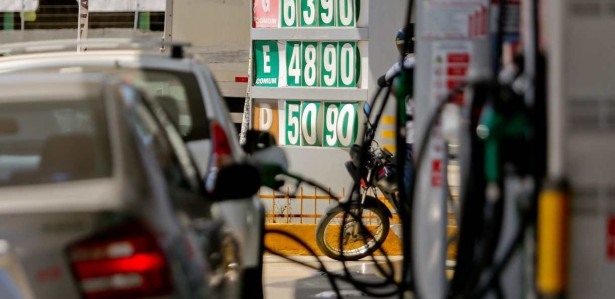ICMS governors have frozen fuel effective November 1
4 min read
The National Council for Fiscal Policy (Confaz) unanimously agreed to freeze the value of the ICMS Fee on Fuel Sales for a period of 90 days. The decision was made by the College at its 339th Extraordinary Meeting, which was held on Friday morning (29).
>>> Cheaper petrol? How is the price with ICMS freeze
The goal, according to the council, is to cooperate in maintaining prices at the values in effect on November 1, 2021, until January 31, 2022.
With the constant rise in gasoline, in the search for the culprit to increase, the ICMS tax rate on fuel that the states practiced came under heavy attack. In Brazil, the tax varies by unit of the union, with 25% being the lowest (practiced by some states) and 34% the highest, practiced by Rio de Janeiro.
In the war of narratives between the federal government and the governors, Bolsonaro has positioned the tax as a major factor in price hikes. What the states denied, citing Petrobras’ international price parity policy as a weighting factor.
In Pernambuco, end-consumer weighted average price (PMPF) increased, due to Petrobras adjustments. Thus, from November 1, the value of a liter will increase by R$ 0.09, which is added to the R$ 0.21 announced by Petrobras, and will go from R$ 5,880 to R$ 6,186.
The final consumer weighted average price (PMPF) is used in the calculation of the ICMS charge on fuel. The index is calculated according to the information that the state government sends to the National Council for Fiscal Policy (Confaz), which corresponds to a part of the final price.
With the freeze, this difference is expected to be contained, but consumers can still feel the progress in the prices charged to the pump, due to potential adjustments announced by Petrobras.
“The price at the refinery will continue to increase and get to the pump as well. The difference is that it is charged at a lower value than what the market is exercising. The effect cannot be immediately measured with respect to the final pump. The price, but there will be some impact, yes, on the price and on state revenue, Which will be stabilized,” says attorney and tax law professor Eric Castro e Silva.
He remembers that it is now important to keep an eye on Petrobras’ next moves regarding prices, which will still reflect the divergence in the dollar and the price of a barrel of oil.
According to Pernambuco Finance Minister and Confaz Coordinator, Desio Padilla, the measure was a “greater gesture” seeking to bring Petrobras to the negotiating table for more in-depth discussions with the states.
“It is important to pass on to the entire population that the freezing of PMPF will not fail to cause increases. It is due to the 100% parity peg achieved by Petrobras, even though it only imports 38%. The increases are attributed to this in addition to the riyal with a significant decrease in the value of The currency and the price of a barrel of oil, Brent, which rose from $70, six months ago, to $86. That was the perfect storm,” says Padilla.
According to him, the states made this gesture by saying: “Everything is possible, we will do, but to solve the issue, there are two basic solutions: the Price Stabilization Fund and the competition from Petrobras, which does not own it.”
Konvas hopes 90 days will be enough time for Petrobras to get into the discussion, particularly the possibility of a compensation fund fueled by oil revenues, adjusted annually, or a portion of the federal government’s profits, with resources pumped in every three months.
The state-owned company says that in the latest adjustment, the average selling price of gasoline A (which was passed on to distributors still without blends) increased from R$2.98 to R$3.19 per liter, reflecting an average adjustment of R$0.21 per liter. the one.
Given the mandatory mixture of 27% anhydrous ethanol and 73% gasoline A to make up the gasoline sold at service stations, Petrobras’ share in the pump price of gasoline is now R$2.33 per liter on average, which corresponds to a difference of 0.15 BRL per liter.
In the price composition, as of October 23, Petrobras allocated R$ 2.18 to itself, while ICMS represented R$ 1.72.
In a statement, President of the Northeast Confederation and Coordinator of the National Forum of Conservatives, Governor of Piauí, Wellington Dias, said, “The ultimate solution, time will tell, is to capitalize the Fuel Equalization Fund, and this is what has reduced the price of a liter of gasoline from about R$7.00 to around R$4.50 and oil Diesel ranged from about R$4.80 to about R$3.70.” Dias also advocates that tax reform could lead to a further decline in prices, while lowering taxes on consumption and fuel.
With higher oil prices in the international market and higher fuel prices in Brazil, Petrobras reported a profit of R$31.14 billion in the third quarter of this year. Thus, it reversed the loss in the same period last year.

“Entrepreneur. Music enthusiast. Lifelong communicator. General coffee aficionado. Internet scholar.”







